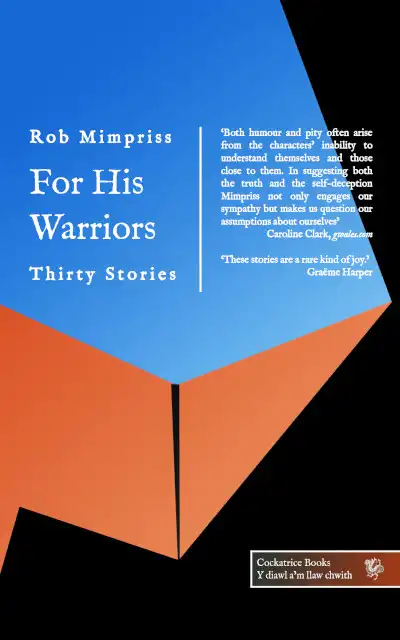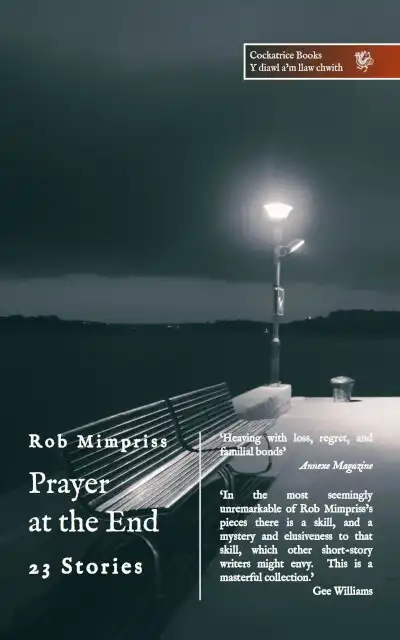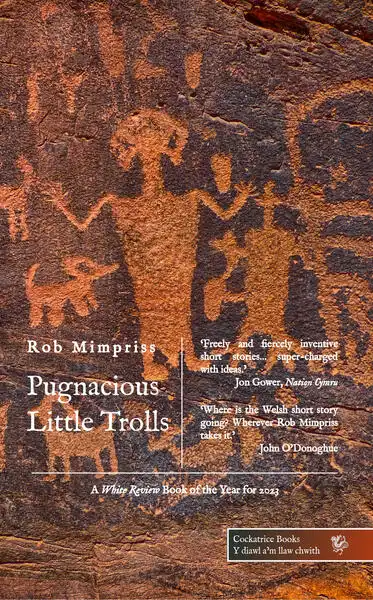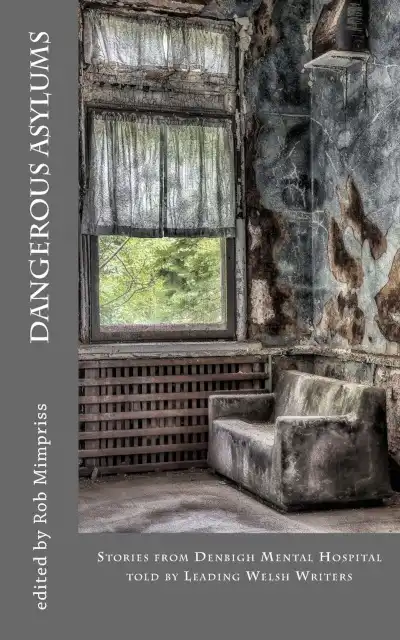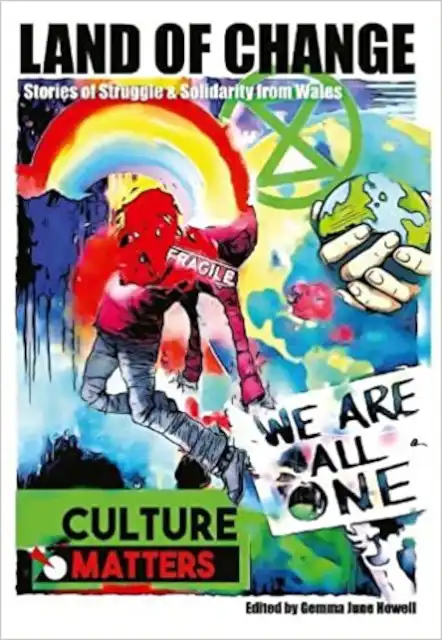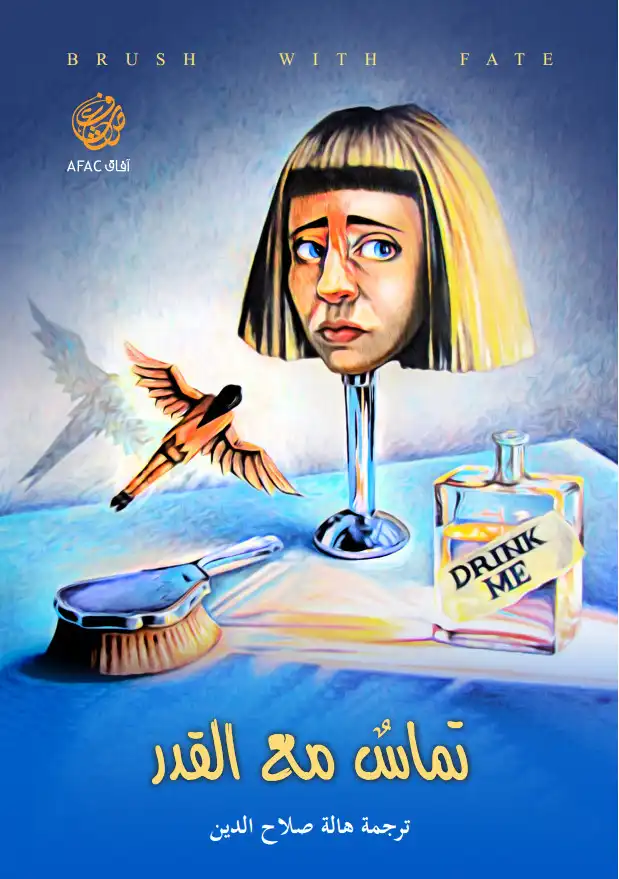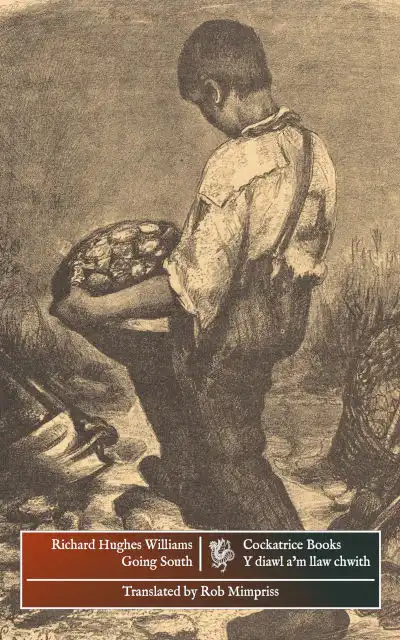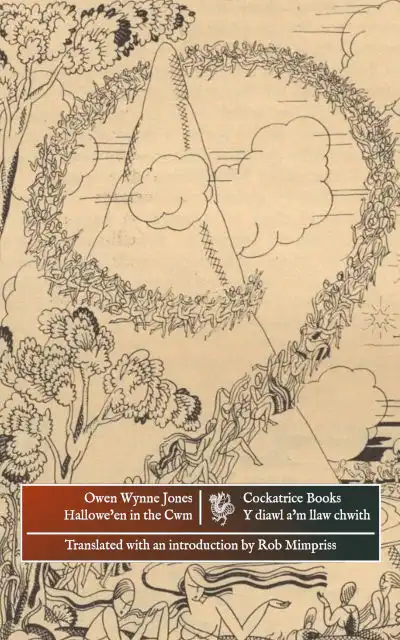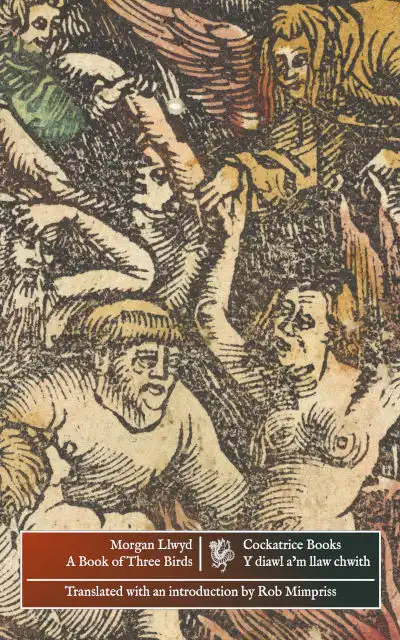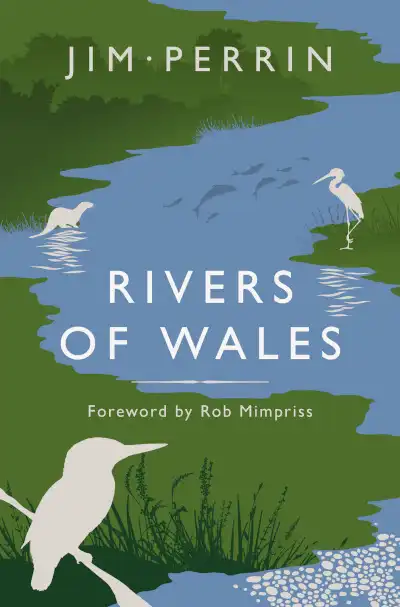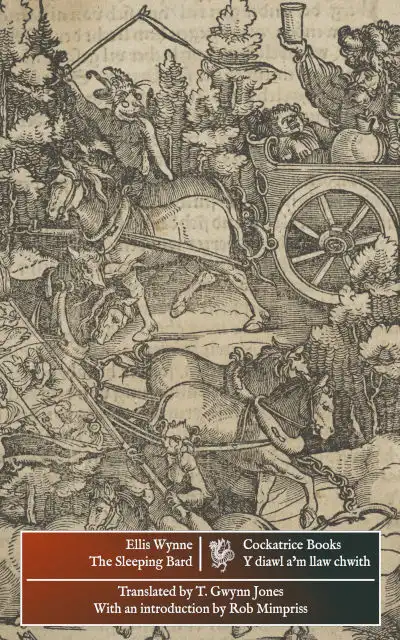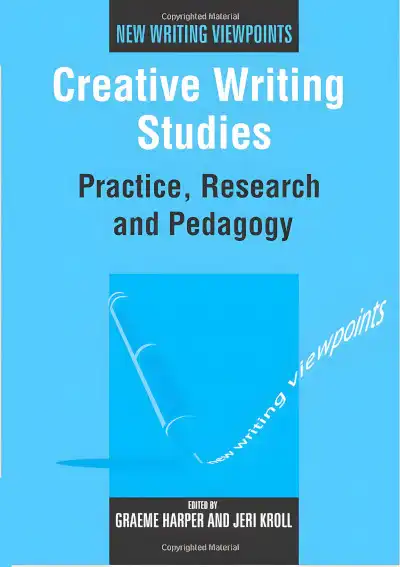Kate Roberts, born to an impoverished quarrying and cottaging family in Rhosgadfan, Gwynedd in 1891, was a leading Welsh writer and national figure until her death in 1985, and remains a neglected giant of European literature. This interview, conducted by Saunders Lewis, was broadcast on radio in 1947 and published in Crefft y Stori Fer (Llandysul: Clwb Llyfrau Cymreig, 1949). The interview reflects not only on the evolution and significance of the short story in Welsh literature, considering its native precedents and foreign influences, but also provides an insight into the creative process of a short-story writer of unsurpassed insight, passion, resonance and artistic control.
My thanks are due to Mair Lewis Davies for permitting me to publish my translation, and to Dr David Greenslade for his help with the Welsh.
S.L.: My happy task, Kate Roberts, is to try to attract authors of the short story in Welsh to talk about their work. And it’s very fitting to have you in front of the microphone first, for although you are also a novelist, it is in the field of the short story that you won your place and reputation in literature. I remember your first stories appearing in magazines some three or four years after the end of the First World War, the war – as we can see now – that defined the lives of people of our generation. I remember the conviction coming over me that a new writer had appeared; and then in 1924, with your stories ‘Y Wraig Weddw’ (The Widow) and ‘Henaint’ (Old Age), we all saw that the Welsh short story had taken on a new lease of life: a life definitely inside the world of artistic creativity. The short story had a further undertaking, it was the medium of vision. But now, before I say more, here is a question that comes naturally to mind: how did you come to choose the short story as the form of your writing? At the time the short story didn’t have much status in Welsh. It didn’t count like the ode or the lyric, even though the occasional collection like Brethyn Cartref [by T. Gwynn Jones (1871-1949)], and Richard Hughes Williams’s collection had appeared, and John Morris Jones had opened Beirniad to the stories of Dewi Williams and others. What made you choose the form? Why short stories?
K.R.: I can’t say for certain why short stories and not the novel, unless it’s because experience casts light on a single step, and not on the whole of life. It’s hard to say after a quarter of a century. Something comes to mind; you see the material for a story in it; and perhaps you don’t think you have time to produce a novel, even if it occurs to you. But also the short story was popular in England, and in translations to English from other languages, and also Gwenda Gruffudd had given me a taste for Maupassant in Welsh. People like Katherine Mansfield were attracting attention because they brought a new way of writing the short story, a way that made people forget O. Henry and others like him, who wrote short stories for the sake of the unexpected ending. I admired the Welsh short stories you’ve mentioned, but there weren’t enough of them – and you can never get enough stories to read when you’re young.
Yes, that suggests another chapter in the history of the influence of English literature on Welsh. But then again, could there not be Welsh roots to your work? Glasynys, who wrote a great many short stories, came from the same parish as you. I’ve edited a selection of them, and Glasynys says there was a tradition of telling stories when he was young, and that he heard his mother telling fairy tales and folk tales in front of the fire.
Yes, there was a tradition of telling stories in my area, but I don’t know anything about the kind of stories described by Glasynys. I would think Glasynys is romanticising somewhat; but if people did tell stories by the fireside in his time, it was in the big farms skirting the parish, and in Rhostryfan. But I never heard from my parents about that way of spending an evening, even though they talked about evening entertainments. In Rhosgadfan we led cottagers’ lives, and those cottages had been won from the mountain. The so-called Red Gate was only put up after the buses began, to keep the sheep from coming down off the mountain. Compared with Rhostryfan and the lower part of the parish, the village isn’t that old. But there was a tradition of story-telling in spite of that, quarrymen going to each others’ houses in the winter evenings, popping in uninvited, and without exception there was story-telling. But these were just amusing stories, a kind of anecdote, and fellow quarrymen describing their escapades.
Well, was there any skill in the way these stories were told?
Yes, the skill was to make these amusing stories seem significant. I remember literary judgements being passed by the hearth in my old home: if anyone laughed at the end of his own story, or if he told the story portentously and nothing happened in it. Indeed, the way we listened to story-tellers like that was enough to make them stop half way, if they had enough sense to notice. But anyway, the tradition you speak about could have come indirectly to the quarrymen of my district, because many of them originated from Llŷn, where I believe traditional story-telling took place. But if I may say so, I don’t see that tradition is important in this connection. Whatever tradition we speak of would have been fairly recent, and someone has to start everything. If Adam had written stories, he wouldn’t have had tradition or influences. And I don’t think the influence of foreign authors counts for much either. What reading stories from other languages did to me was not to make me want to imitate their style, or borrow from them in any way, but to show me that there was material for literature in the life of my own area: especially after reading writers who didn’t use the technique of ingenious endings. Indeed, it made me decide on a style entirely different from their own. But reading all the time is a spur for me to write.
Yes, that shows one can’t connect your work with the old tradition of story-telling in the Middle Ages – though I don’t think Glasynys imagined he’d heard those stories. But obviously the practice didn’t survive to our time. In that sense there’s a considerable difference between Wales and Ireland. But tell me, what in particular inspired you to write at all?
The death of my younger brother in the 1914-18 war; not being able to understand things, and having to write so as not to be choked. Politically, this drove me to the Nationalist Party. I’m a terribly thin-skinned woman; everything hurts me deeply, and the hurt lasts a long time. Life itself hurts me. Death lifts the scales from some people’s eyes; it gives you a shock, and gives — like in a flash of lightning – a new perspective on character, or society or indeed on life itself.
Yes, that comes very close to defining the kind of story we often have from you. It isn’t just death that lifts the scales from one’s eyes in a lot of your stories, but any incident that gives – like in a flash of lightning – a new perspective on character or life. For example, an old man who’s just reached seventy years old going to work that morning as usual, and his wife looking at him: ‘This was the first time it had struck Beti. She watched and listened to everything that day as though it were new. Some sense came to her head, with her husband reaching that age, that he would have to leave the quarry and live on his pension, and that everything that was happening that morning, and had happened every morning for decades, was coming to an end. Beti looked a long time at her husband. She had not considered him so long since before she had married.’ And the end of the story: ‘She thought to herself, “He’ll be lying in that cemetery soon, with his hands crossed for good.”’ There we have it: giving a new perspective in a flash on character, and on all the life of man in the world.
May I interrupt you for a minute to say something? There’s a special meaning to ‘having your hands crossed’ in Caernarfonshire Welsh: that is, ‘being idle.' In fact, it’s almost a synonym for laziness. And you’ll see that I couldn’t divest myself altogether of trying to do a clever ending by playing with that idiom and the two meanings it has in the story.
No, it’s not just trying to be clever. It’s entirely fair, and it deepens the moment and its vision that all the meanings and all the significance of that ending are appropriate there. Idleness is a form of death, and death is a form of rest to the corpse. And can you put a finger, Kate Roberts, on where you think your short stories originate?
That’s a difficult question. I sometimes wonder if there aren’t as many different kinds of short story as there are authors. I like the Princess Bibesco’s definition, ‘the shooting star of literature’; and ‘shooting star’ is a good description of what I’ve tried to write: some experience or flash of light on something, or a series of things in a close relationship. Even when you have a series of incidents in this way, the emphasis is on one thing more than the others. There has to be a ‘ninth wave’ for the other waves to get enough attention. Some people think the Parable of the Prodigal Son is a short story, one of the greatest in the world. On the surface it seems like a novel synopsis. But I think it is a short story, and the climax arrives when the father forgives him. Maybe some say the moment when the son decides to go home is the climax. From the viewpoint of crafting a short story, perhaps we don’t need to know about the older son: that’s the material of another story.
Very well; we come at one thing by means of another. How do you see the material for a story and take hold of it?
Again, it’s hard to say. It’s hard, almost impossible, for a builder to say how he lays brick upon brick to build a house: only that he starts with a foundation, and carries on with the walls, and finally puts the roof on. But he can’t tell you how it’s done. But the foundation must be strong, even though it’s out of sight. And to me, the thing that’s of sight, the experience, is most important. Sometimes, but not very often, you remember something that happened in the life of someone else, and it seems significant enough to write a short story about it. That’s how it was with ‘Henaint’ (Old Age), ‘Y Taliad Olaf’ (The Last Payment), and ‘Y Llythyr’ (The Letter). But only because I mould it in my own furnace, and put the emphasis where I think it ought to be. For example in ‘Y Taliad Olaf’, I happened to hear about something that happened to an old woman closely related to me. She couldn’t get out of debt all the time she was running the farm, until they sold the stock and used the money to do it. And the thing came to me so strongly, it hurt me if you like, to know that the struggle to make ends meet was so hopeless and endless, that I decided that this was material for a story. But I don’t think the person it happened to looked at it that way at all. Of course, sometimes you get the same person living through something and looking at it from the outside as well.
Yes, except of course that there has to be time between something happening, and meditating on it afterwards. But you’re not like that either. You look at other people’s lives in your stories, not your own.
Sometimes, looking at my stories today, I think the method I took was of looking through my imagination at the experience of the people I was raised with (and these experiences most often come from the struggle against poverty), describing the things that led to that experience (that’s probably why there’s so much looking back in the stories), and building the story with the things I think are essential to arrive at the climax. Sometimes a little thing somebody says can be enough to give me the theme for a story: hearing that a sick man has returned from hospital with no hope of recovery, seeing a bare tree in front of a lonely house in winter, or chickens crouching against the wind. I’d like to emphasise that the slightest murmur can give me an idea, and it’s because of that that the stories seem slight. A lot of editors have referred to this slightness, the absence of great disturbance in them, the lack of any reference to major events like war. One English editor said about me once, ‘Her sadness is like a long, low sigh across the depths.’ Well, there’s something bigger behind a sigh, after all. And the only thing I can say is that it’s an effect of the great disturbance that’s there. My stories are like little waves on the surface of a lake, and the disturbance is at the bottom. Ffebi Williams wouldn’t need to put her quilt over her head if so much wasn’t happening in the shop below her.
That’s interesting, because it throws light on the process or method that a lot of poets and writers use. Let me try to rephrase it to see if I understand. The excitement, or the first symbol, the thing that starts the work off, comes from somewhere, some word or incident that pushes itself into the mind and takes hold there. But while chewing it over, while meditating on it, a host of experiences comes, memories of every kind that connect with it and become one with it. Indeed, that’s how a poet meditates, not reasoning a new thing into the incident, or working out the logic of cause and effect, but extending a line and lifting from the store of the past the old experiences and the old disturbances that this new experience wakens and combines. It is a kind of fishing. You are a fisherman, and your line whips the quiet lake of experience and memory and life. What kind of lake do you fish in? Or to lay the figure of speech aside, will you tell me where your experience and material as a writer comes from?
From the community I was raised in, an impoverished community at an impoverished time in its history. Because of that, I was never tempted to write stories dealing with sex or personality conflicts, or the struggles of the soul: it was always a fight against poverty. But you’ll notice the characters never reach the depths of poverty; they struggle against it; they fear it. In fact they’re proud; they like things like glass plates when they were in fashion, and Ffanni Rolant fingers a piece of cloth to see how much it’s worth, a symbol of the whole community. Richard Hughes Williams’ stories, about people so poor they have to go to the workhouse, always strike me as odd. A lot of critics have said there’s no conflict in my stories; the conflict is there, but perhaps the emphasis is more on the quietness that’s reached at the end. And if you’ll let me say so, without accusing me of blasphemy, I believe that this quietness is an experience almost as spiritual as Williams describes in the verse:
Mi orffwysa’ f’ enaid bellach
Ar yr annherfynol stôr,
Ac mi ganaf yn y dymestl
Ar y graig sydd yn y môr.
Some critics have said that this is a reflection of my character. On the contrary. As I said, I’m a thin-skinned woman, easily hurt, and by nature a terrible pacifist. My bristles are raised at once against anything I consider an injustice, be it against an individual or a society or a nation. Indeed, I’d like to have some great stage to stand on, facing Pumlumon, to be able to shout against every injustice – like the terrible injustice I personally felt, that the government took the children of monoglot Welsh cottagers to fight the wars of the Empire, and sent official letters to say that those children had been killed, in a language the parents couldn't read. But some instinct told me that the short story wasn’t a soap box to stand on, and that I’d have to discipline myself strictly as a living human being, and as a writer trying to write, to stop myself getting bitter against everyone and everything. And the same reviewer says, ‘You don’t find one line with any hint of bitterness in her work.’ And another said they have no feelings of anger, ill-feeling, pride, self-pity or rage. Of course it’s no compliment that those elements are not to be found, because they can be read into some of the characters. But I want to say that the absence of these feelings from my stories doesn’t reflect my character. The things inside me are totally different, and I have allowed them into many of my stories. But it was a hard struggle; I had to fight like the Devil himself to curb my emotions, and to bring my characters to the same place of quietness.
I have to thank you for everything you’ve said in this interview. I believe everyone will be greatly helped to enter the world of your stories, because you have put your finger on two things that unite to make a masterpiece in the stories themselves: that is, the special attribute of the society one finds in them, the poverty and the constant, everyday struggle against poverty, and your own particular attribute as a woman whom everything hurts, whom life itself hurts. One must have a rare maturity of mind to say something so profound and simple. I also know you don’t expect my sympathy or pity for the things you’ve said. Instead of that, you should be congratulated. You were lucky in your community, lucky in your literary material. People whose circumstances press down upon them, hurt and disappointed by life: those are your characters, the exiled children of Eve. And reading about them, I can’t compare them with anything in contemporary English or overseas literature, but with the characters of the old poets of early Greece – Hesiod or Homer himself. There is some primal, Greek, classical air about them. They grow weary from their strivings against the rock and the soil, and know that there is no release from their weariness until death itself releases them. Take the last sentence I mentioned already, the old woman looking at her husband and saying, ‘He’ll be lying in that cemetery soon, with his hands crossed for good.’ Hector could say that. He did say something of the same sort to his wife when he said goodbye to her for the last time. These Greek elements in your stories, the timeless, fashionless classicism; to me that’s part of their strength and fascination.
May I interrupt you once again to say that there is another side to that poverty question? What if I’d been born in a wealthy society? I don’t mean wealthy in material things, but a society of people with literary polish and an education, people who’d lived for centuries in the world of books and high culture. Wouldn’t I be a better writer because of it? I believe when writers are born into that kind of society, two thirds of their literary careers have already happened before they are born. But perhaps we don’t have time tonight to go into the advantages and disadvantages of the two kinds of society?
No indeed. If you’d been born in any other kind of society you wouldn’t be Kate Roberts, and we wouldn’t be here talking about it. It’s a very good thing that none of us get the opportunity to choose our own parents, even for the sake of the short story. But to turn now for the rest of the time to one or two lighter points: you’ve already said how your stories grow. This suggests that the technique of the story, how to develop and plan it, isn’t a major issue for you. But what about language and style, bearing in mind that you were a student under John Morris Jones?
Very true. I’ve never paid much attention to the technique of the story, and I’m afraid to think about beginning, middle, and end. You see the marks of a conflict I went through in my first stories, about having an unexpected or surprising ending. But I gave up trying to be clever after your piece in Y Faner. But I did pay a lot of attention to sentences and words, searching for the right word to express what I wanted, and not using a word for the sake of the word, since that’s a temptation at the beginning. But experience is the great thing for me, seeing with my feelings and trying to convey them with my senses through words, trying to be honest; and because of that I very often have to leave out any ornamentation of style. To me there’s no meaning in a sentence unless it’s an accurate expression of my own experience. For me, that’s the meaning of the saying that the man himself is his style.
Can you give an example of that?
Well, there’s that sentence about the sick quarryman in ‘Henaint’; it’s mentioned that his hands are clean. A lot of thought went into that remark, and it’s so simple that it can slip past like totally barren and worthless prose. But it’s talking about a quarryman, who’s had slate dust and water hardening on his fingers all his life. One Englishwoman understood what I meant, and a Welsh labourer.
But you’d had one important advantage: a formal education in Welsh.
A rare thing for writers before our generation. Although I had a better advantage in studying Welsh than many, since I was taught Welsh in the elementary school, and in the County School, and in college, language mostly, I can’t really say I was taught anything about the value of literature as literature all through my entire education. Think now, I never had, either in school or college, any criticism of Daniel Owen at all. The nearest thing I ever heard to criticism of Daniel Owen was by the hearth at home. Something like this: ‘I don’t like Gwen Tomos at all; it seems an unnecessarily depressing novel. Why does he have to take her to America to die there? He should have finished the story when she was married and had some money.’ But even though I never had the advantage of critical discussion I was shown the Welsh language in all its glory, and that was a tremendous help to my style. I think reading the Mabinogion in the original, in the curt, clear, short sentences that are so full of suggestion, was a great help to me even though I was probably unaware of it. I think I was also remarkably fortunate in having monoglot parents, with all the richness of the Llŷn and Eifionydd dialects on their lips. And learning the science of language thoroughly in college. And I was fortunate in one other thing, though perhaps this isn’t the right place to speak of it.
But indeed it is, that’s why we’re here.
Well, here we go. I was brought up in a very radical household. We weren’t afraid to criticise, and we were willing to put the measuring rod to other people, especially my mother. She constantly relied on her instincts to know a person, and nine times out of ten she was proved right. Remember, it’s by the hearth, not on the street, that the knife does its work; that’s where we really pass judgement on things. But you need to have something like that to write stories. No one ever became a writer through godly blindness to other people’s faults.
What about plans? Are you thinking out or preparing any new stories?
I’ll never stop thinking out new stories. If there were a way of inventing a machine to write down thoughts as well as words, I think the world would be full of my stories in no time. Even so, I’m afraid I’ll do nothing but sit on the outside of life looking in, instead of living my own life. I can’t explain exactly. I feel as though I’m moving in a personal wasteland, and watching as life goes by. There are enough things to write about, so long as one has a life. You see, when I began to write, I didn’t just have an idea for a story, I had an idea about life; and because of this the vision must go on. When an author has an idea for a story it finishes there, until the next idea comes. But if you have a vision of life, another story will be pushing itself forward before you finished writing the first one. It’s possible I’ll write short stories again, but I feel now I’d like to write a short novel; I don’t think I could write a long novel, since it would be too much trouble writing a whole one.
What about new movements or tendencies in literature? Do any of them attract you?
I don’t know. I don’t feel the old way of writing has been exhausted in Welsh yet, although obviously it’s exhausted in English, because of all these new experiments. I’m afraid I’m too old fashioned to go after these new ways of doing things, though I do feel there’s one author whose style could be imitated in Welsh; I mean Miss Virginia Woolf. I totally agree with her that one shouldn’t write everything down that happens to the characters. What matters most is the impressions the author has in his mind. And the Welsh language is good for this kind of thing; it’s very well adapted for conveying descriptions and appropriate reflections; it’s been a splendidly poetic language all through the centuries, and the everyday speech of the people is full of descriptive idioms. So I believe there could be a novel of this type in Welsh. Anyway, there’s as much material for novels in life as there is for short stories, since novels are a portrait of life. Indeed the material shouldn’t be exhausted in a lifetime, even though it’s often a grey, empty life. But one has to keep looking, keep thinking, keep working. And I’m afraid I suffer from the weakness of my nation, which is laziness. So I don’t know when the novel will be. But the intention is there. But one needs genius to turn intention into strength, and I am not a genius.
‘I did not have an idea for a story when I began writing; I had an idea about life.’ That’s what you said a little while ago. You couldn’t say anything better to show where the secret of your stories lies. The ordinary incidents of everyday life become symbols because they give us a vision of the life of man on earth.

